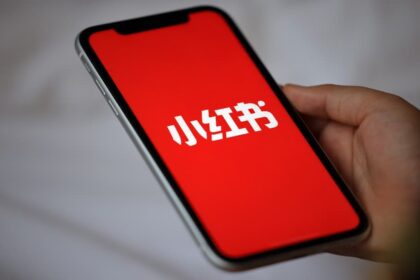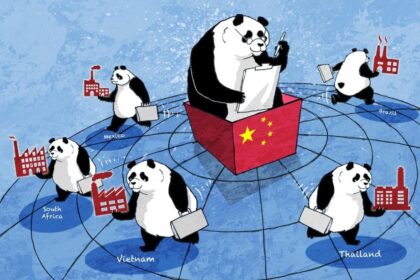Introduction: A New Era for Korean Labor
South Korea’s labor landscape is undergoing its most significant transformation in decades. On August 24, 2025, the National Assembly passed the so-called Yellow Envelope Bill—an amendment to the Trade Union and Labor Relations Adjustment Act (TULRAA)—with an overwhelming majority. Set to take effect in March 2026, this law aims to address deep-rooted inequalities in the labor market by expanding protections for subcontracted, non-regular, and platform workers, while also restricting companies’ ability to seek damages from unions for strike-related losses. The bill’s passage marks the culmination of a 20-year campaign by labor activists and is already reshaping the dynamics between workers, employers, and the state.
- Introduction: A New Era for Korean Labor
- What Is the Yellow Envelope Bill?
- Key Provisions: How the Law Changes Labor Relations
- Immediate Impact: A Surge in Union Activity
- Business Backlash: Fears of Uncertainty and Rising Costs
- Legal and Policy Analysis: What the Experts Say
- Broader Implications: Toward a More Equitable Labor Market?
- In Summary
What Is the Yellow Envelope Bill?
The Yellow Envelope Bill refers to a package of amendments to Articles 2 and 3 of the TULRAA. Its nickname comes from the yellow envelopes used by citizens to send donations to SsangYong Motor workers who faced crippling lawsuits after a 2009 strike. The bill’s core provisions are designed to:
- Broaden the legal definitions of “employee” and “employer,”
- Expand the scope of what constitutes a labor dispute,
- Limit or exempt unions and workers from liability for damages resulting from industrial action,
- Empower unions representing subcontracted and platform workers to negotiate directly with parent companies that substantially control working conditions.
These changes are particularly relevant in industries with layered subcontracting, such as shipbuilding, logistics, manufacturing, and the rapidly growing platform economy.
Historical Roots: From Lawsuits to Legislation
The origins of the Yellow Envelope Bill trace back to the 1990s, when a government directive encouraged companies to use civil lawsuits as a tool against striking workers. This led to a wave of damage claims that left many union members facing financial ruin. The 2009 SsangYong Motor strike, in which over 2,600 workers lost their jobs and the union was sued for more than 300 billion won, became a national flashpoint. Public outrage over the resulting hardship for workers and their families sparked the Yellow Envelope Campaign, which collected donations and galvanized support for legislative reform.
After several failed attempts and two presidential vetoes, the bill finally passed in 2025, championed by President Lee Jae Myung’s Democratic Party. The law’s passage was met with celebration by labor groups and fierce opposition from business lobbies and conservative politicians.
Key Provisions: How the Law Changes Labor Relations
The Yellow Envelope Bill introduces several groundbreaking changes to South Korea’s labor law framework:
1. Expanded Definitions of “Employee” and “Employer”
Previously, only direct employers were required to bargain with unions. The new law broadens the definition of “employer” to include any entity that exercises substantial and specific control over a worker’s duties or working conditions. This means that parent companies, not just subcontractors, can be held responsible for labor negotiations if they dictate key aspects of employment.
Similarly, the definition of “employee” is expanded to include anyone who provides labor for another’s business or who organizes or joins a union. This explicitly covers platform workers, freelancers, and the self-employed—groups that have historically fallen outside the scope of traditional labor protections.
2. Broader Scope for Labor Disputes and Strikes
The law expands the definition of a labor dispute to include not only wages and working hours, but also managerial decisions such as restructuring, mass layoffs, plant relocations, and business closures. Strikes against such decisions, previously deemed illegal, are now recognized as legitimate industrial action. This change is particularly significant for workers in precarious positions who are most vulnerable to sudden changes in employment status.
3. Restrictions on Corporate Damage Claims
One of the most contentious aspects of the old system was the ability of companies to file massive damage suits against unions and individual workers for losses incurred during strikes. The Yellow Envelope Bill restricts this practice by:
- Prohibiting employers from seeking damages with the intent to threaten or obstruct unions,
- Requiring courts to consider proportionality, individual roles, and financial circumstances before awarding damages,
- Allowing for the allocation of responsibility among individual workers only when concrete evidence of fault exists,
- Introducing a “self-defense” principle, waiving damages if a strike was the only means to protect workers from unlawful employer conduct.
Unions do not receive blanket immunity, but the bar for employer lawsuits is now much higher, and the risk of financial ruin for striking workers is greatly reduced.
4. Direct Bargaining Rights for Subcontracted and Platform Workers
Perhaps the most transformative change is the ability of unions representing subcontracted or platform workers to demand negotiations with the parent company, provided it has substantial control over working conditions. This addresses a longstanding problem in industries where large conglomerates set wages and safety standards but evade responsibility by outsourcing to smaller firms.
For example, in shipbuilding, dozens of subcontractors operate within the shipyards of a single conglomerate. Under the new law, if the parent company dictates key employment terms, it must now come to the bargaining table.
Immediate Impact: A Surge in Union Activity
The law’s passage has already triggered a wave of demands from subcontractor unions across South Korea. At Hyundai Steel, unionized subcontractor workers staged protests demanding direct negotiations and the withdrawal of damage suits. At Samsung Electronics, a subcontractor union called on the tech giant to intervene in disputes over back pay. Similar actions have been reported at Naver, SK hynix, and major department store chains.
Labor groups see the law as a long-overdue correction of power imbalances. According to the Korean Confederation of Trade Unions, the bill is “the result of two decades of activist sacrifices” and a historic achievement for worker rights.
Case Study: The IT Sector and Platform Work
The impact of the Yellow Envelope Bill is not limited to traditional manufacturing. In the IT sector, unions representing workers at Naver’s sub-subsidiaries have held rallies demanding negotiations with management. Platform workers—such as delivery drivers and gig economy participants—are now explicitly covered by the law, allowing them to demand talks with companies that control pay algorithms and dispatch systems.
This expansion of rights is expected to ripple across industries that have relied on flexible, non-regular labor, forcing companies to engage more directly with the people who do the work.
Business Backlash: Fears of Uncertainty and Rising Costs
While labor groups have celebrated the law’s passage, business leaders and foreign investors have voiced strong concerns. Six major industry associations, including the Korea Enterprises Federation and the Korea Chamber of Commerce and Industry, issued a joint statement condemning the bill. They warn that:
- The broadened definition of “employer” could make it difficult to manage labor disputes and disrupt workplace order,
- Virtually all managerial decisions could become subject to strike action,
- Legal uncertainty could paralyze corporate decision-making, especially in industries with complex supply chains,
- Rising labor costs and potential delays could threaten Korea’s competitiveness in manufacturing, autos, shipbuilding, and steel.
Foreign business groups, such as the American Chamber of Commerce in Korea (AMCHAM), have also raised alarms. James Kim, AMCHAM’s chairman and CEO, stated that “a flexible labor environment is essential to strengthening Korea’s competitiveness as a business hub in the Asia-Pacific region.” Some multinational firms, including GM Korea, have hinted at reassessing their operations in the country if the business environment becomes less predictable.
Small and Medium Enterprises (SMEs) in the Crosshairs
SMEs, which often operate as subcontractors themselves, are particularly anxious. Many fear that strikes by one supplier could ripple through tightly interlinked production chains, causing widespread disruption. Some business leaders argue that the law’s ambiguity over who qualifies as an employer could lead to confusion and unintended consequences.
Legal and Policy Analysis: What the Experts Say
Legal experts note that the Yellow Envelope Bill codifies trends already emerging in Korean courts, which have increasingly recognized the rights of special-type and platform workers to unionize and bargain collectively. The law provides clarity and consistency, but also introduces new legal questions that will likely be tested in court.
For example, the expanded definition of “employer” means that parent companies could be required to negotiate with subcontractor unions even if there is no direct contractual relationship. Courts will need to determine what constitutes “substantial and specific control” over working conditions—a standard that may vary by industry and circumstance.
The law also ends the practice of “peace obligations,” which previously prevented unions from striking over issues covered by collective agreements. Now, unions can strike if they disagree with how such agreements are interpreted or implemented.
Government Response: Managing the Transition
Recognizing the potential for confusion and conflict, the government has announced a six-month grace period before the law takes effect. During this time, a task force comprising representatives from labor, business, and government will be established to:
- Gather feedback from workplaces,
- Develop clear guidelines on the definitions of employer and labor dispute,
- Provide on-site support for bargaining in industries with layered labor structures,
- Monitor and enforce compliance, including investigating unlawful labor practices.
The Ministry of Labor plans to pilot joint bargaining models in sectors like shipbuilding, aiming to protect subcontracted workers while maintaining industrial competitiveness.
Broader Implications: Toward a More Equitable Labor Market?
South Korea’s labor market has long been characterized by a stark divide. Regular employees at large conglomerates enjoy job security, high wages, and strong unions, while non-regular, subcontracted, and platform workers face low pay, weak representation, and little legal protection. The Yellow Envelope Bill is designed to bridge this gap by ensuring that all workers—regardless of employment type—can exercise their constitutional rights to organize, bargain, and strike.
If successful, the law could usher in a more mature, less adversarial model of labor relations. By curbing excessive lawsuits and offering clearer bargaining frameworks, it may reduce the reliance on conflict-heavy tactics that have defined Korean labor relations for decades. However, the risk of increased industrial action and legal disputes remains, especially as the new definitions and responsibilities are tested in practice.
International Perspective
South Korea’s move is being closely watched by other countries grappling with the challenges of the gig economy and precarious work. The law’s explicit inclusion of platform workers and its restrictions on corporate damage claims set a precedent that could influence labor policy debates elsewhere.
In Summary
- The Yellow Envelope Bill is a landmark amendment to South Korea’s labor law, expanding protections for subcontracted, non-regular, and platform workers.
- The law broadens the definitions of “employee” and “employer,” allowing unions to bargain directly with parent companies that control working conditions.
- Strikes against managerial decisions such as layoffs and restructuring are now legal, and companies face new restrictions on seeking damages from unions and workers.
- Business groups and foreign investors have raised concerns about legal uncertainty, rising costs, and Korea’s investment climate.
- The government is implementing a six-month transition period with a task force to develop guidelines and support on-site bargaining.
- The law’s success will depend on its implementation and whether it can reduce Korea’s entrenched labor divide while maintaining industrial stability.












